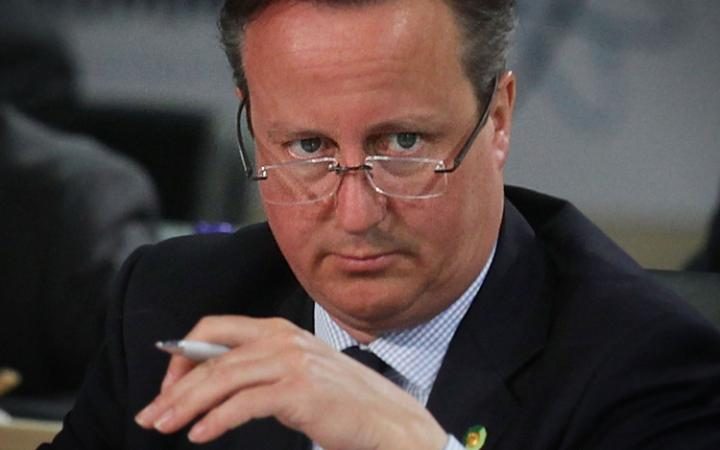De-bundling Free Movement: an acceptable solution for all sides?
 The question of free movement was undoubtedly the central issue of the European Union referendum debate, and it will, surely, be the central question surrounding Britain’s future relationship with the EU. While Leave campaigners repeatedly assured us that access to the EU’s single market (presumably through the EEA) is quite possible without accepting free movement, the early rumblings from the EU institutions and Member States do not sound too promising.
The question of free movement was undoubtedly the central issue of the European Union referendum debate, and it will, surely, be the central question surrounding Britain’s future relationship with the EU. While Leave campaigners repeatedly assured us that access to the EU’s single market (presumably through the EEA) is quite possible without accepting free movement, the early rumblings from the EU institutions and Member States do not sound too promising.
There are, of course, numerous free movement rights within the EU: free movement of goods, of services, of capital, to name but a few. However, the contentious free movement is that of persons. However, the broad term “free movement of persons” is a relative neologism, bundling the long-standing right of free movement of workers with the more recent right granted to all citizens of the EU to move reside freely within the territory of the Union.
Contrary to the rhetoric that we have heard, it is in fact entirely possible to participate in some aspects of the single market without accepting the free movement of persons. This is the case, for example, in the Channel Islands, and the Isle of Man, which participate in the free movement of goods, but not people, services, or capital. However, while the idea of the “Channel Islands Model” sounds attractive to many, it is probably even less likely than Scotland doing a “reverse Greenland”. The Crown Dependencies are considered by Article 355 of the Treaty on the Functioning of the European Union (TFEU) as special cases, along with various other overseas territories and dependencies of the Member States. While they might demonstrate that it is at least possible to selectively participate in the internal market, they also demonstrate that you have to be a territory or dependency to do it – not a state.
The right of free movement for workers is intrinsically tied up with the internal market, being one of the “four freedoms” that has existed since the inception of the European Economic Community (EEC, or “the Common Market”).
Free movement of workers is provided for by what is now Article 45 TFEU. It provides that:
- Freedom of movement for workers shall be secured within the Union.
- Such freedom of movement shall entail the abolition of any discrimination based on nationality between workers of the Member States as regards employment, remuneration and other conditions of work and employment.
- It shall entail the right, subject to limitations justified on grounds of public policy, public security or public health:
- to accept offers of employment actually made;
- to move freely within the territory of Member States for this purpose;
- to stay in a Member State for the purpose of employment in accordance with the provisions governing the employment of nationals of that State laid down by law, regulation or administrative action;
- to remain in the territory of a Member State after having been employed in that State, subject to conditions which shall be embodied in regulations to be drawn up by the Commission.
Paragraph 4 provides the sole exception, which applies to employment in the public service (though not, according to the ECJ, all employment in the public service, see Commission v. Belgium). The right was held to cover not only workers, but also those seeking work, by the ECJ in Antonissen, although in an inventive piece of jurisprudence the court held that the rights of jobseekers were subject to limitations.
The right of citizens to move and reside freely provided for by Article 21 TFEU is of more recent genesis. A product of the Treaty of Maastricht, free movement for citizens is a right that is applicable far more broadly than simply the economically active migrants to whom Article 45 TFEU applies. Article 21(1) TFEU provides that
Every citizen of the Union shall have the right to move and reside freely within the territory of the Member States, subject to the limitations and conditions laid down in the Treaties and by the measures adopted to give them effect.
It should be immediately apparent to even the casual reader that this right of free movement, though broader in scope, is much more circumspect than the free movement of workers.
The rights attaching to free movement of workers were expanded upon by Council Regulation (EEC) No 1612/68, and subsequently entangled with the rights of free movement of citizens by Directive 2004/38/EC.
The 1968 Regulation is comprehensive. Article 7 provides that
- A worker who is a national of a Member State, may not, in the territory of another Member State, be treated differently form national workers by reason of his nationality in respect of any conditions of employment and work, in particular as regards remuneration, dismissal, and should he become unemployed, reinstatement or re-employment.
- He shall enjoy the same social and tax advantages as national workers.
The Directive further provides for equal treatment with respect to trade union membership and housing. It also extends this treatment to spouses and dependents.
The 2004 Directive provides for far more limited rights for citizens than the 1968 Regulation. For example, Article 6 of the Directive provides that the right to move and reside in another Member State is only without restriction for the first three months. Thereafter, Article 7 provides that such migrants must
have sufficient resources for themselves and their family members not to become a burden on the social assistance system of the host Member State during their period of residence and have comprehensive sickness insurance cover in the host Member State.
However, despite the clear intention of the legislating institutions to severely curtail the burden that such migrants may place on the social assistance system of the host Member State, this has not stopped the ECJ from granting entitlements to non-economically active EU citizens which any plain-text reading of both the treaties and the Directive would surely proscribe. The only recent example of the ECJ declining to extend a state benefit payment to a non-economic migrant is the 2014 Dano decision.
Could it be, therefore, that de-bundling the free movement of workers from the free movement rights of Union citizens is the compromise that would be most acceptable to all parties? It certainly has a number of advantages.
First of all, it would allow the EU to maintain that it has preserved the free movement of workers that is so intrinsic to the internal market. Meanwhile, the UK could claim a victory in having ended the absolute right of union citizens to move and reside freely, restricting the right solely to economic migrants.
It might also be a politically acceptable compromise, as it wouldn’t involve reviewing any of the treaty provisions regarding the internal market. Rather, it would merely involve reviewing the 2007 Decision of the EEA Joint Committee to adopt the 2004 Directive in full. No treaty change means there is no need for ratification, which would keep the debate surrounding it largely out of the domestic spheres of other EU Member States.
What this amounts to in reality is largely symbolic. As the definition of “workers” includes jobseekers, those looking for work will still be able to travel to and reside freely in the UK, at least until the UK Government can demonstrate that their job search is hopeless. In reality, the majority of non-economic migrants are retirees, and there are a far greater number of British pensioners in Europe than there are European pensioners in the UK. It may well be that when the Tory-voting Daily Mail readers of the Costa Del Sol discover that, in fact, they’re the only migrants who are about to be kicked-out of anywhere, our new government decides that the full free movement of persons principle is a price worth paying for market access after all.

 “We have surrendered our sovereignty to the European Court of Justice” is the one of the most common arguments in favour of leaving the European Union of the Tory right. This, I have argued before, is somewhat surprising given that the consequence of that loss of sovereignty is the removal of Member States’ liberty to depart from a free-market, pro-private enterprise, capitalist ideology. The cardinal offender, in the minds of
“We have surrendered our sovereignty to the European Court of Justice” is the one of the most common arguments in favour of leaving the European Union of the Tory right. This, I have argued before, is somewhat surprising given that the consequence of that loss of sovereignty is the removal of Member States’ liberty to depart from a free-market, pro-private enterprise, capitalist ideology. The cardinal offender, in the minds of  Where trusts are concerned, there are three different roles:
Where trusts are concerned, there are three different roles: